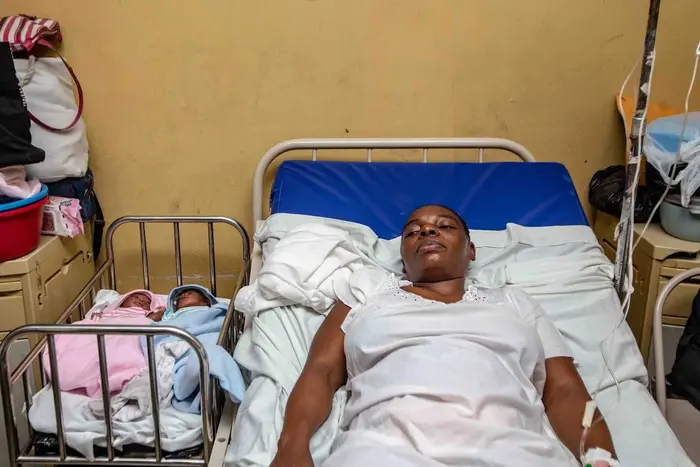Port-au-Prince, 23 April 2024 (PAHO/WHO) – This project aims to support the Ministry of Health and Population (MSPP)'s emergency response and improve access to health care, which is becoming increasingly difficult due to the current security situation. Given the situation, the United Nations Population Fund (UNFPA) and the Pan American Health Organization (PAHO/WHO) are jointly supporting three hospitals in the Port-au-Prince metropolitan area (ZMPAP) to provide maternal health services.
Ensuring continuity of maternal health management
Eleazar Germán Hospital is one of three centers to benefit from this support, which includes the supply of essential medical equipment and products, as well as a reliable electricity supply to ensure the constant availability of electricity. This includes installing the system.
“With support from UNFPA and PAHO/WHO, we are now able to provide essential obstetric and neonatal care and respond to emergencies at any time,” explains Dr. Francito Datus, the hospital's medical director. .
Josefa, a 34-year-old young mother, is a direct beneficiary of this partnership. She recently gave birth to twins, a girl and a boy, via caesarean section. “It went well. I received very good care,” she said with a look of relief on her face.
Safer, lower cost care
“Our aim is to reduce the cost of childbirth and to enable pregnant women to give birth in decent conditions in facilities and in the presence of qualified personnel,” emphasizes Philippe Degernier, UNFPA Representative in Haiti.
Since the partnership was established, 62 physiological deliveries and 45 caesarean sections have been recorded across the three beneficiary hospitals.
“In the face of worsening access to health services, especially maternal health services, our support aims to increase capacity not only for childbirth but also for the management of obstetric complications, thereby reducing the risk of maternal and neonatal mortality. ,” explains PAHO's Dr. Oskar Bareneš. /WHO Haiti representative.
Both organizations are also extending support beyond maternity services to address urgent sexual and reproductive health needs. To this end, kits for managing complications of abortion and kits for managing sexual violence are being distributed.


